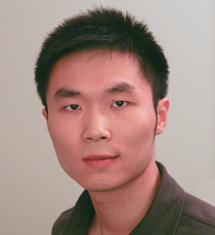Jia Deng Wins Marr Prize at ICCV

 Enlarge
Enlarge
Prof. Jia Deng has won the Marr Prize, which is the best paper award of the International Conference on Computer Vision. Named for neuroscientist David Marr, the Marr Prize is a prestigious biennial award and is considered one of the top honors for a computer vision researcher.
Prof. Deng’s paper, “From Large Scale Image Categorization to Entry-Level Categories,” was co-authored with colleagues at UNC and Stony Brook. In the paper, the authors study entry-level categories – the labels people will use to name objects – at a large scale and learn the first models for predicting entry-level categories for images. Their models combine visual recognition predictions with proxies for word “naturalness” mined from the enormous amounts of text on the web. They demonstrate the usefulness of their models for predicting nouns (entry-level words) associated with images by people. The authors also learn mappings between concepts predicted by existing visual recognition systems and entry-level concepts that could be useful for improving human-focused applications such as natural language image description or retrieval.
Prof. Deng’s primary research focus is in the area of computer vision. In particular, he tackles large-scale computer vision challenges by leveraging big visual data – the massive amount of images and videos made available by digital cameras, mobile devices, and the Internet. To harvest, understand, and harness big visual data, he develops statistical models, learning algorithms, and systems with humans in the loop. Ultimately, his goal is to build intelligent machines that can perceive and reason about the complex visual world.
Prof. Jia Deng joined the faculty at Michigan in September 2013. He is currently conducting research at Google and will begin his full time appointment in Fall 2014. He received his Ph.D. from Princeton University in 2012 and his B.Eng. from Tsinghua University, both in computer science. Prof. Deng has built datasets and tools used by more than 1,000 researchers worldwide and his work has appeared in popular press such as The New York Times. He has been the lead student organizer of the ImageNet Large Scale Visual Recognition Challenges since 2010. He was also the lead organizer of the first BigVision workshop at NIPS 2012.